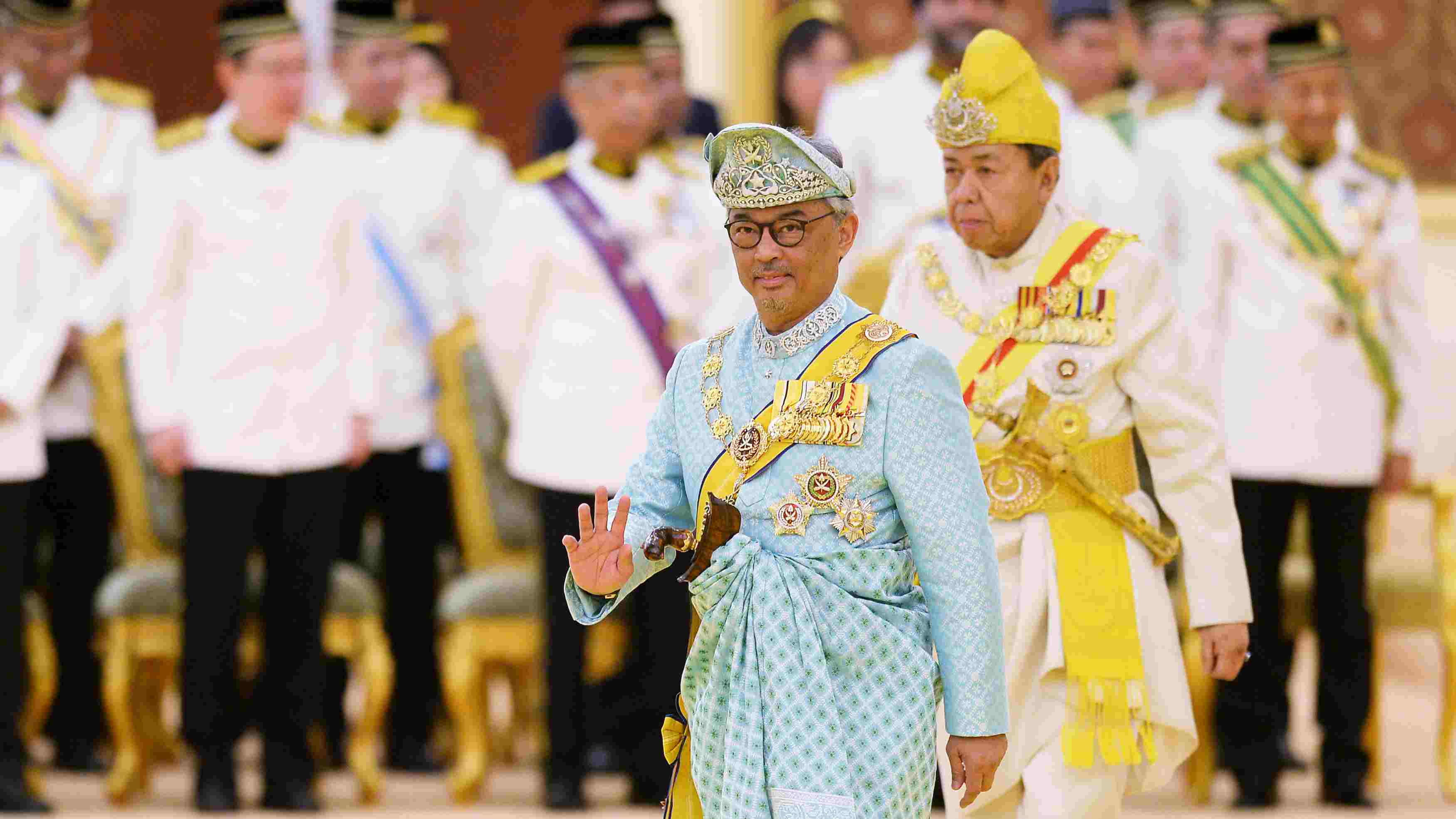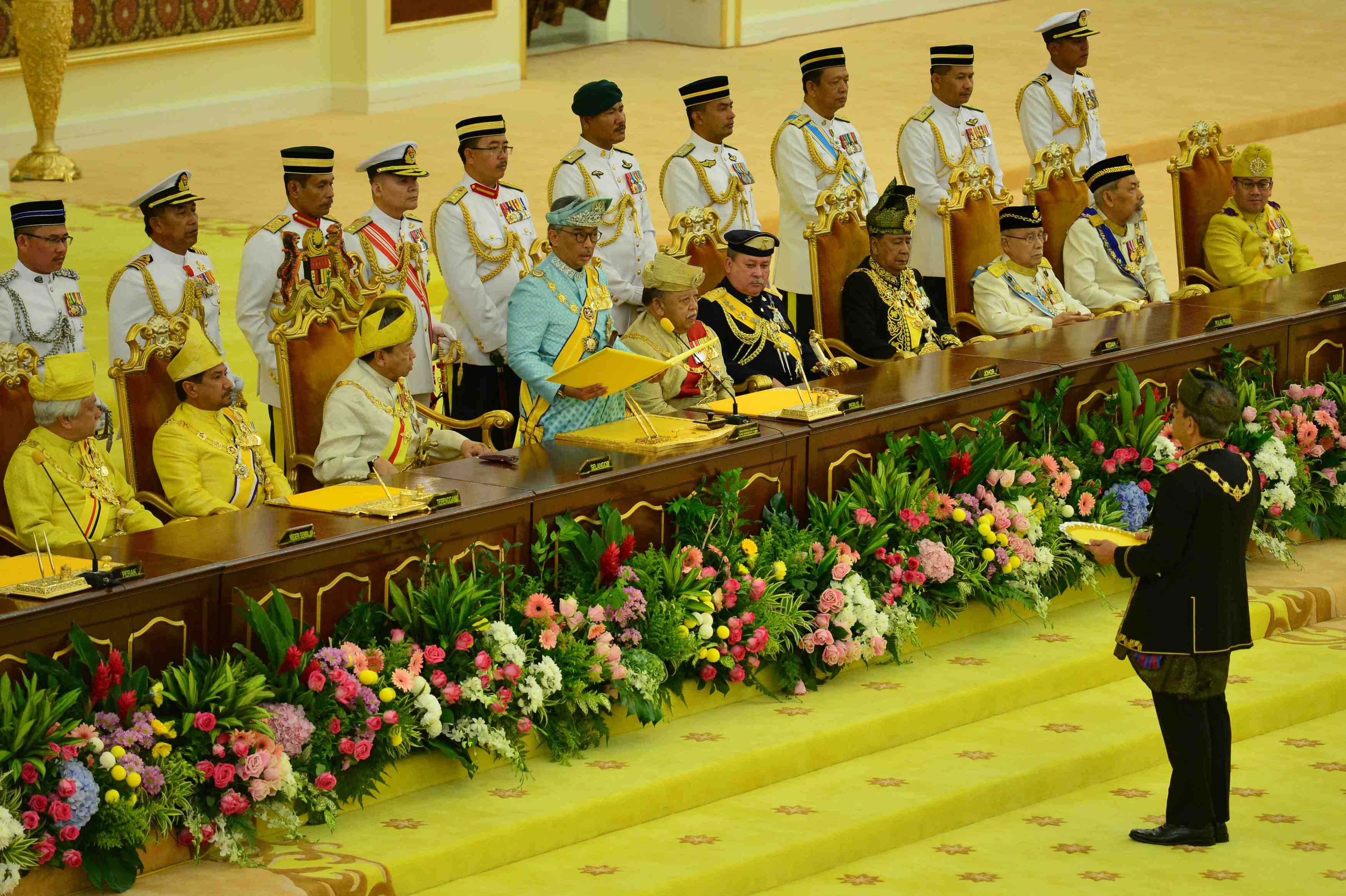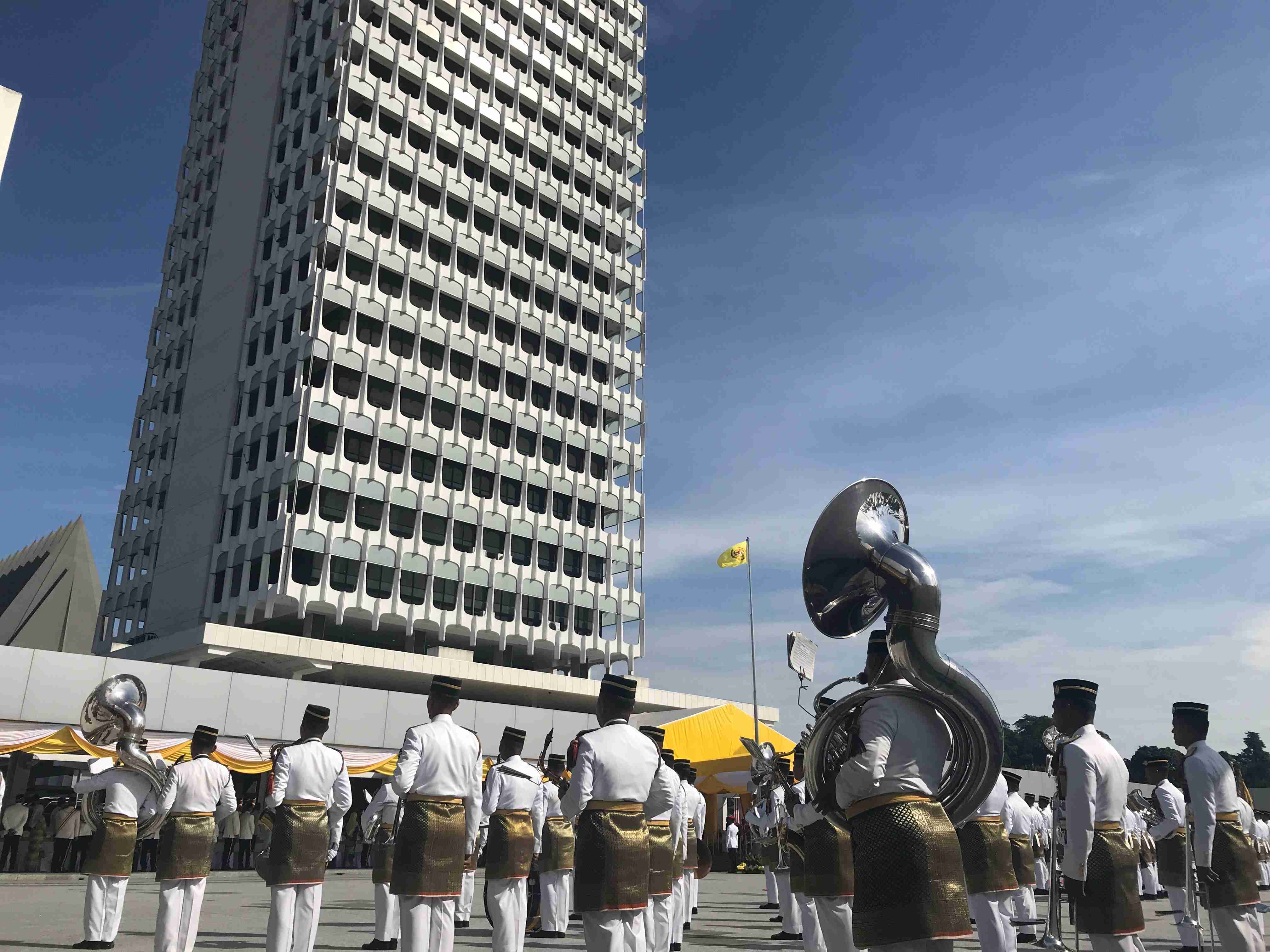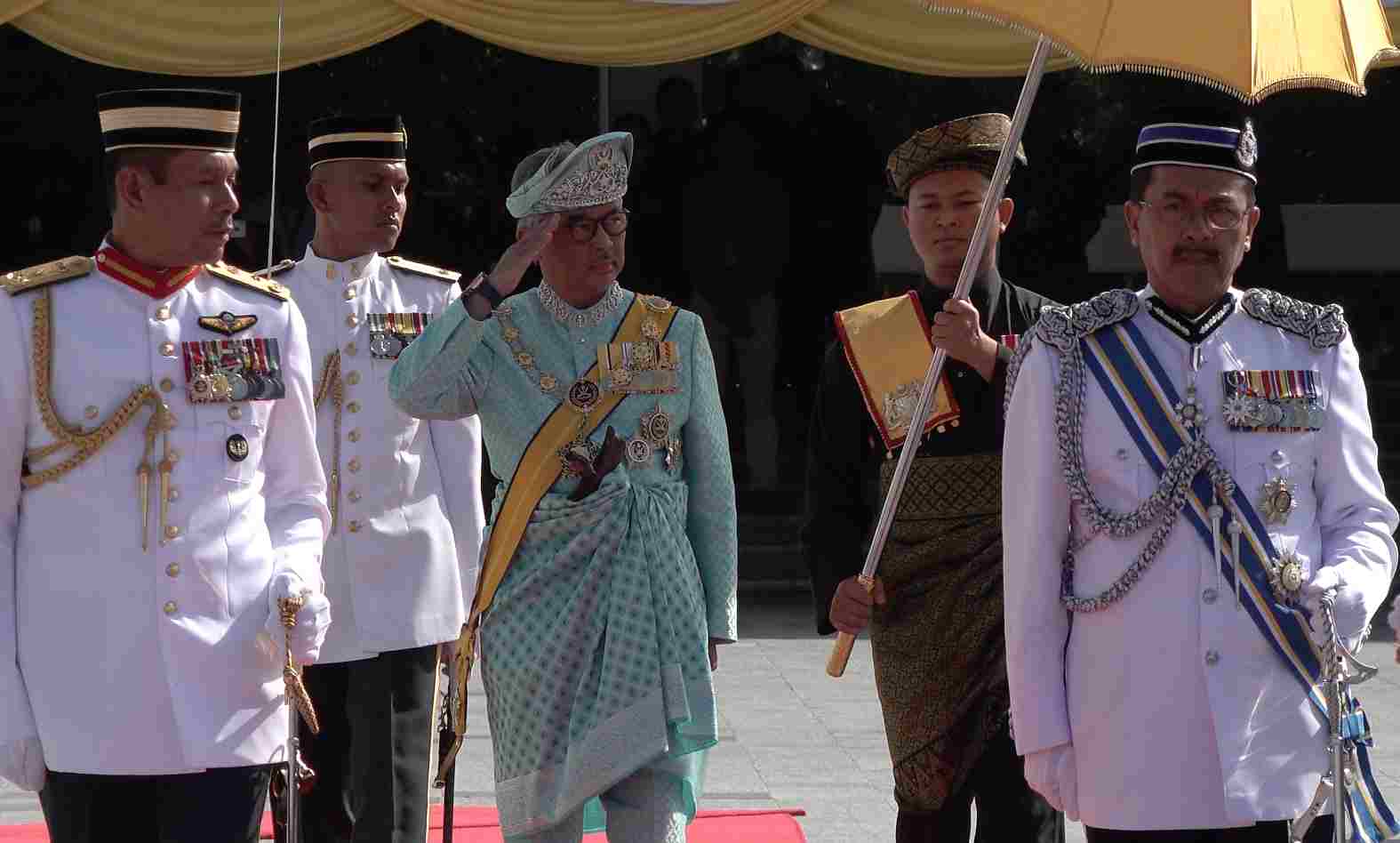
Asia Pacific
22:10, 31-Jan-2019
Malaysia’s 16th king formally takes the throne
By Rian Maelzer
00:37

Just a few weeks ago, he wasn't even sultan of his largely rural, east coast state of Pahang. But on Thursday, Sultan Abdullah took his oath of office as Malaysia's 16th Yang di-Pertuan Agong, or king.

The swearing ceremony. /Photo via Malaysia Information Department
The swearing ceremony. /Photo via Malaysia Information Department
On January 6, after a hurried meeting of Malaysia's Conference of Rulers, it was announced that then-king, Muhammad V, was resigning nearly three years ahead of schedule. Late in 2018, Malaysians were told that Muhammad was taking two months leave for "medical treatment." But not long afterward, photos on social media and in some foreign newspapers showed what was purported to be Muhammad wedding a former beauty queen from Russia.
Marrying a commoner or non-Malay is by no means grounds for resigning in and of itself. Most of the nine royal houses in Malaysia have intermarried with foreigners and commoners. But no formal reason for Muhammad's resignation has been given.

The first ceremony was at parliament's parade ground. /CGTN Photo
The first ceremony was at parliament's parade ground. /CGTN Photo
Under Malaysia's unique system whereby the crown rotates between the royals of nine of the country's states, the next in line was Pahang state. But there was a problem. Pahang's sultan was extremely elderly and infirm. And if Pahang missed its turn this round, the crown prince would have to live to be nearly 100 before he'd get another chance at being king.
So the sultan of Pahang hurriedly abdicated in his son's favor, and on Thursday Abdullah took his place as the country's 16th king.
The day began with a 21-gun salute and the king inspecting the guard of honor at parliament's parade ground, accompanied by a military band. He then left for the palace for the formal oath-swearing ceremony.
Malaysia is a constitutional monarchy, with most powers resting in the prime minister and parliament.
“The king or monarch doesn't play an active role in politics,” says Oi Ei Sun, senior fellow at Singapore's Institute of International Affairs. “But the king is also a symbol of national unity, he is the head of the official religion of Malaysia, namely Islam, he is supposed to in a sense safeguard the special rights of the indigenous people, the Malays especially.”
That symbolic role as guardian of Islam and of the majority ethnic Malays means that any insults against the royals are viewed seriously here. Following the resignation of the previous king, online vigilantes highlighted what they viewed as insulting posts people had made on the Internet, along with personal details about the perpetrators. One doctor at a private clinic and a person working for an international IT company were fired from their jobs, and police charged them and one other person with sedition for insulting the royal institution.
“The government will see it as necessary to preserve and protect the dignity of the monarchy,” says Oh, but he points out that Prime Minister Mahathir Mohamad himself has said that the royals should not be above public criticism.
The royals still have a role to play beyond the mere symbolic.
“They do have discretion in certain limited areas, which are quite important,” says constitutional specialist Lim Wei Jiat.
“For example in the selection of the prime minister, they have a discretion to select who is the prime minister, provided that that person commands support of a majority of the members of parliament. And the second area in which he has discretion is the withholding the pm's request to dissolve parliament.”

The new king Abdullah inspecting the guard of honor at parliament. /CGTN Photo
The new king Abdullah inspecting the guard of honor at parliament. /CGTN Photo
But in recent years, the royals have been more assertive on the political front. The sultan of Johor state and his son have clashed with both the previous and the current government.
And the sultan of the country's most developed state, Selangor, refused to endorse the biggest political party's preferred choice for chief minister and instead demanded that they provide him with a list of candidates to select from.
Most analysts believe it's best if the royals steer clear of politics to shield them from the kind of negativity and insults that politicians have to take in stride.
“Malaysia and Malaysians by and large still pay a very high respect to the institution of the royalty,” Lim says.
The new king, Abdullah, for his part, is known mostly for his keen interest in sports, and involvement with national and international football and hockey associations. And he has a reputation for being down-to-earth – a people's prince who has become Malaysia's king.

SITEMAP
Copyright © 2018 CGTN. Beijing ICP prepared NO.16065310-3
Copyright © 2018 CGTN. Beijing ICP prepared NO.16065310-3